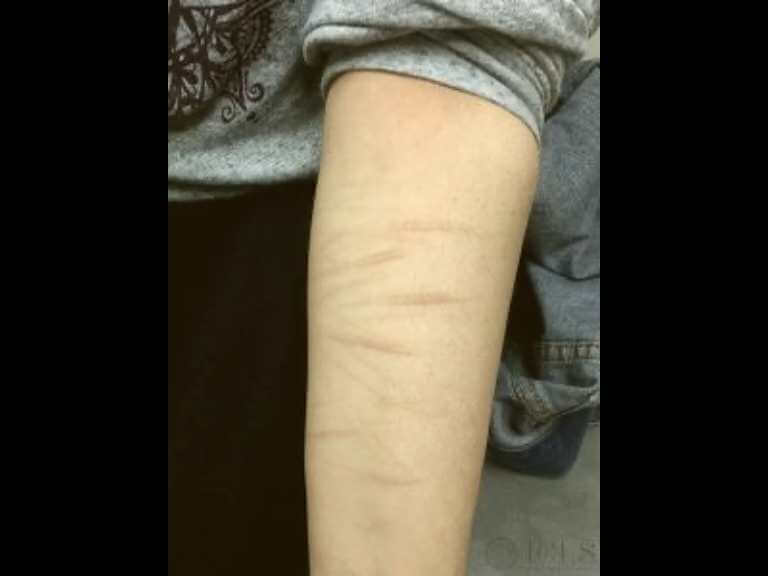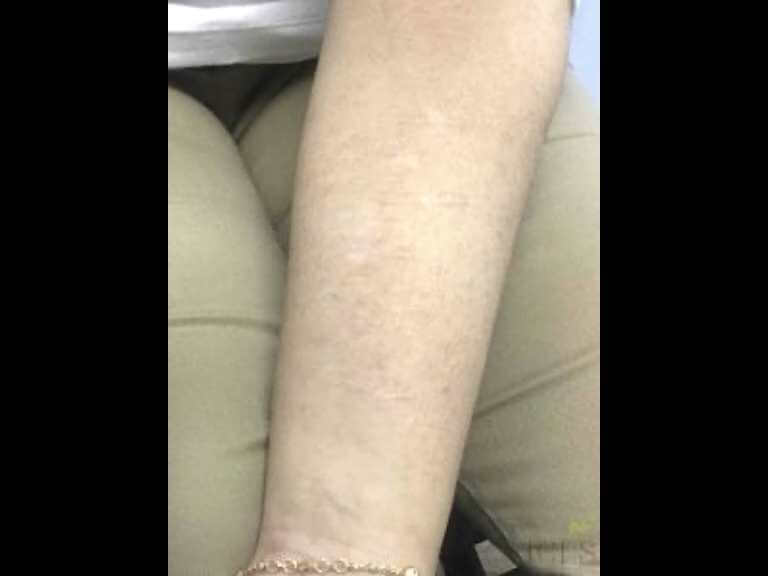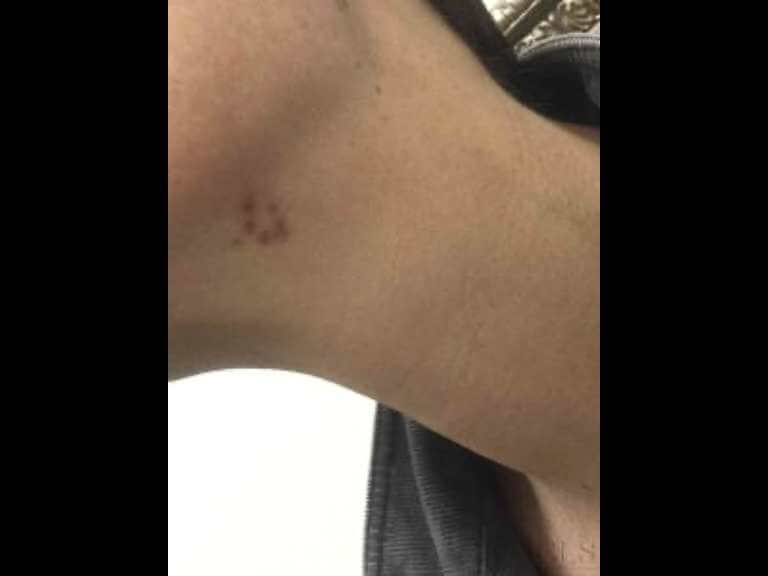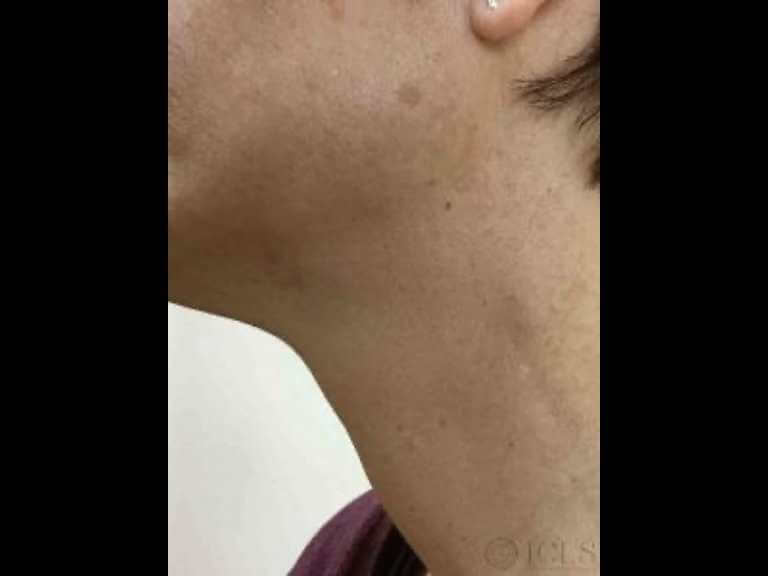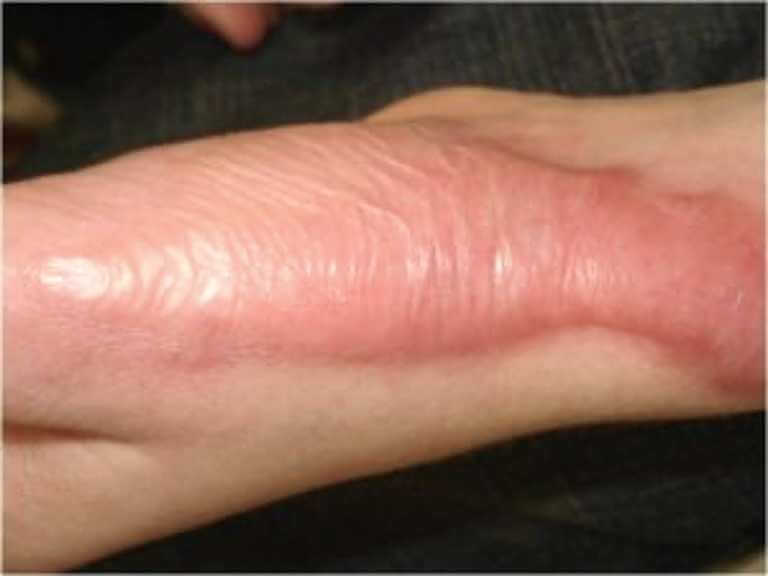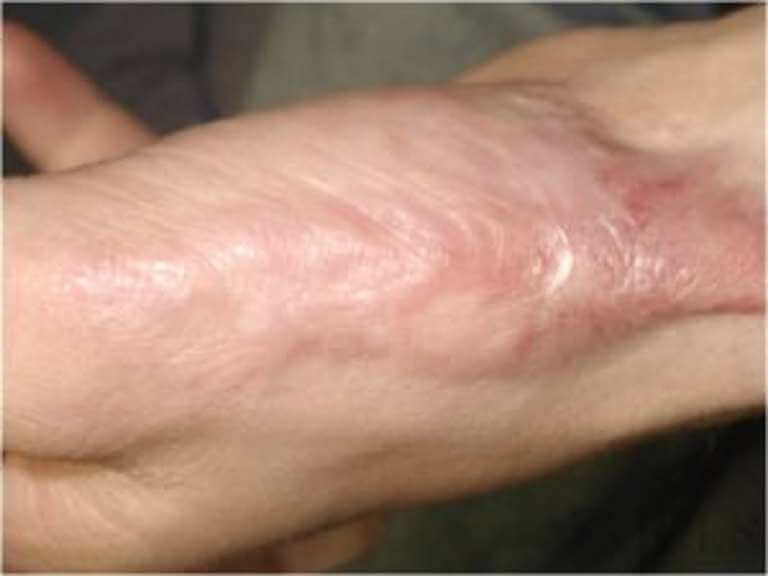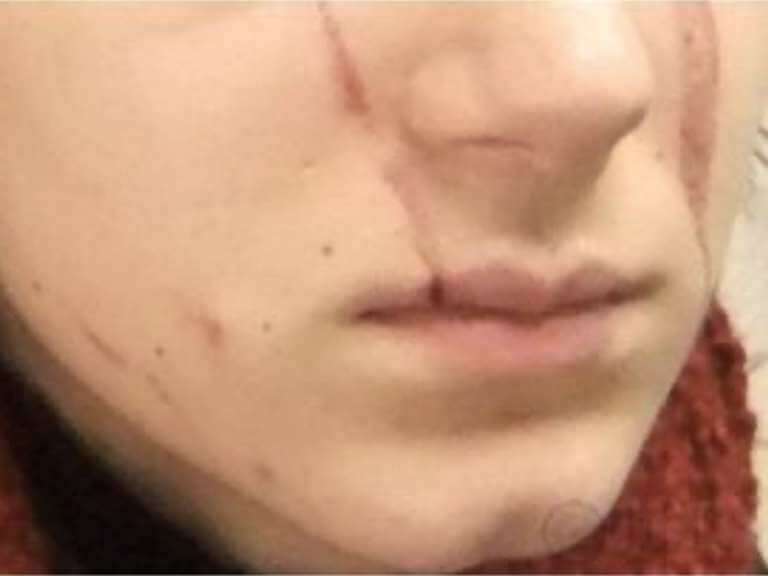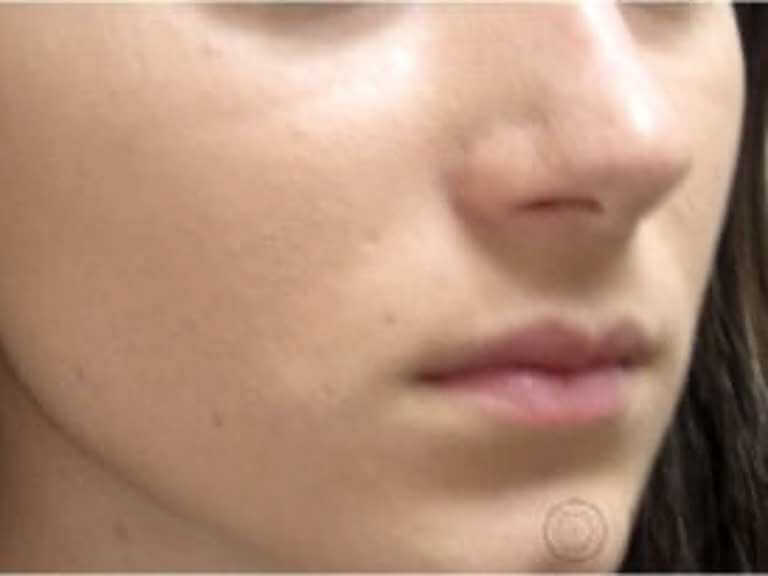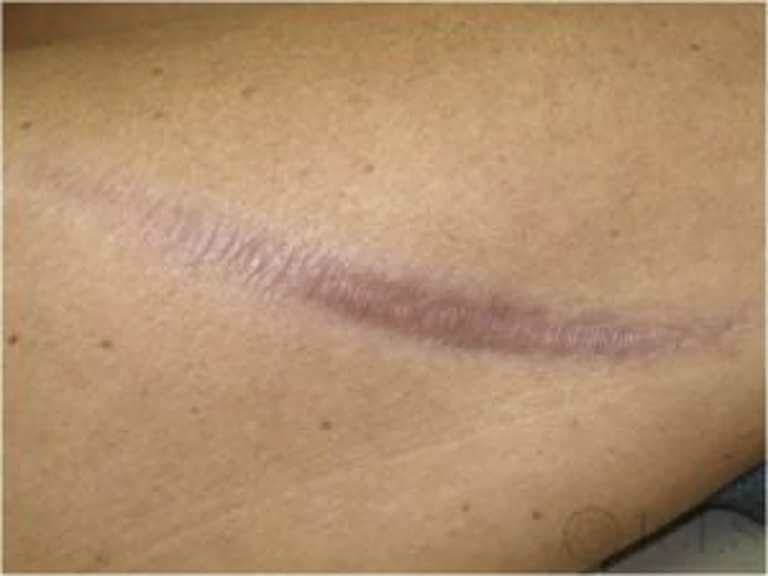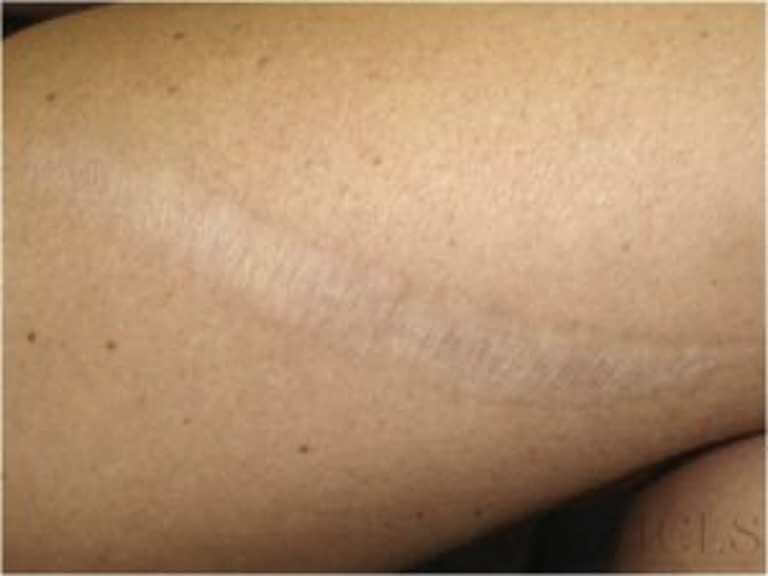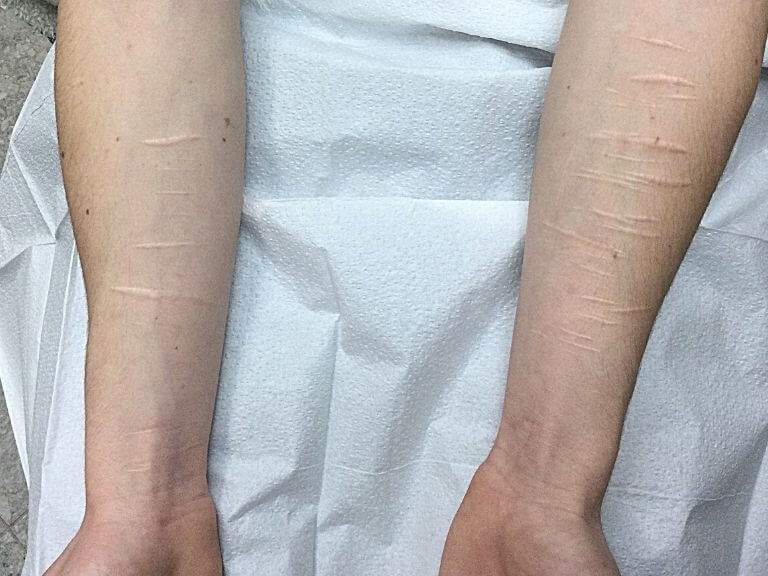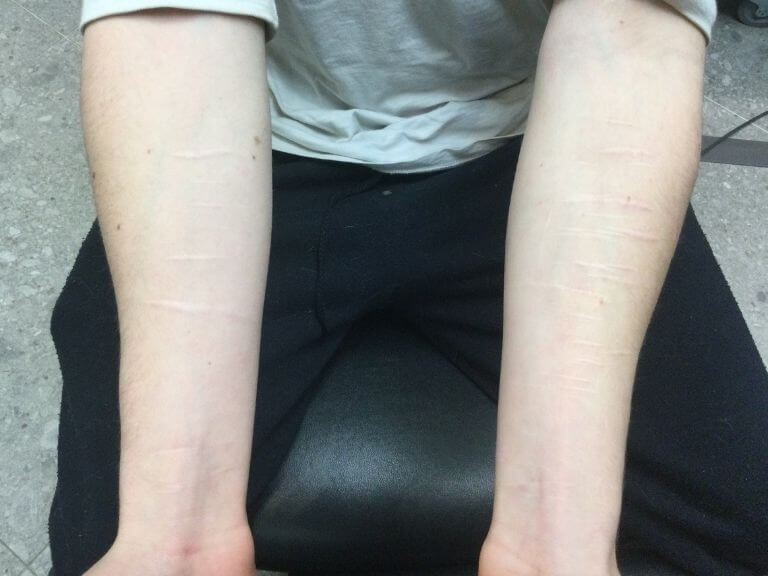Scar Revision in Toronto & Oakville: Comparing Providers, Pricing, Methods & Outcomes
 Non-Surgical Treatment
Non-Surgical Treatment Scars can significantly impact self-confidence and comfort. Scar revision treatments at ICLS Dermatology are designed to minimize the appearance of scars, improving both the texture and appearance of your skin. Whether your scars are the result of surgery, injury, or acne, our expert team is here to help you achieve smoother, clearer skin.
ICLS Dermatology is a leader in scar revision treatments, servicing the Greater Toronto Area from our Oakville clinic. Led by Dr. Sheetal Sapra, our team employs advanced techniques and technologies to provide effective scar reduction tailored to your unique needs.

What Is Scar Revision?
Scar revision is a medical procedure performed on a scar to improve its appearance. Although it may not completely erase a scar, revision can help it blend with the surrounding skin. Scar revision may even restore function to an area with restricted movement of the muscles, joints, or tendons.
Why Do Scars Form, and Why Do They Vary?
Typically made of fibrous tissue, scars form as a natural healing response to skin trauma, whether due to surgery, infections, burns, acne, or self-harm.
This process stimulates collagen growth and skin repair. However, the way a scar heals depends on various factors:
- Genetics: Some individuals will naturally have thicker or discoloured scars.
- Location: Scars that extend over joints, muscles, or tendons are more likely to stretch and thicken over time.
- Depth and severity: Deep wounds and those covering larger areas generally produce more visible scars.
- Skin tone: Deeper skin colours may have more noticeable pigmentation changes.
Types of Scars
Scars can form anywhere on the body. They can look flat, bumpy, sunken, or discoloured and may be itchy or painful. At ICLS, we treat a wide range of common scars.
Common Scar Classifications We Treat
- Atrophic scars are lower and thinner than the surrounding skin.
- Hypertrophic scars are thickened and elevated above the skin but remain within the boundaries of the initial injury.
- Keloid scars are an extreme overgrowth of scar tissue, characterized by a thick, raised, and “rope-like” appearance.
- Acne scarring is common in individuals who have had acne. According to research from the Canadian Medical Association Journal, about 85% of teens and young adults between 12 and 24 deal with acne. For many, the resulting scars and emotional impact can last well into adulthood, long after the acne has cleared up.
Scar Revision Methods
Dr. Sapra will assess a scar to determine a treatment plan that may include using injections, liquid nitrogen, macroneedling, or laser therapy. Depending on the type and severity of the scar, surgical scar revision may be required when injections and lasers are not enough.
Surgical Scar Revision Techniques
This procedure is performed by our plastic surgeon under local anesthesia to reduce and improve the look of the scar. It may be necessary to proceed with laser treatment and/or topical silicone gel therapy (Dermatix Si gel) to further enhance the results and reduce inflammation and redness.
Laser Scar Revision
Laser therapy can help soften and fade scars by targeting pigment and triggering collagen production. This method can also help brighten the skin and create a more even tone. At ICLS, we offer VBeam®, Genesis, StarWalker®, and Pico lasers.
Injectable Treatments for Scar Improvement
Injections can improve the appearance of scars by flattening raised areas, softening thick or tight scars, and filling indentations. They may also help relieve itching, redness, and discomfort.
At ICLS, we may recommend injectables as either a non-surgical scar revision option or in conjunction with other treatments. Injectable cosmetic treatments we offer include:
- Botox®: A popular cosmetic treatment that can relax the area around a scar to improve its appearance
- Collagen-boosting fillers (like Sculptra® or Radiesse®): Used to fill in pitted scars and stimulate natural collagen growth
- Hyaluronic acid fillers (like Juvederm® or Teosyal®): Help raise indented acne scars to make the skin appear smoother
- Platelet-rich plasma (PRP): Uses a patient’s own plasma to promote healing and collagen production; often combined with microneedling for enhanced results
Other Non-Surgical & Minimally Invasive Options
Microneedling
Microneedling and macroneedling use tiny needles to create controlled micro-injuries, stimulating new collagen growth. When paired with PRP or radiofrequency, the treatment can improve scar tissue texture. Combining this procedure with growth factors or HA Boosters may enhance scar revision outcomes.
Learn more about Microneedling and Macroneedling in Oakville, Ontario.
Dermabrasion/Microdermabrasion
Both dermabrasion and microdermabrasion are skin resurfacing techniques that can help improve the appearance of certain scars. Dermabrasion uses a rotating tool to remove layers of skin. It tends to work best for raised or textured scars. Microdermabrasion, which uses fine crystals or a diamond-tipped wand, is gentler and may be helpful for less severe scars.
Learn more about Microdermabrasion at ICLS.
Chemical Peels
Light, medium, or deep chemical peels can help target acne scarring, brown spots, and other skin concerns. Your provider can recommend an appropriate strength based on the severity of the scar.
Topical Treatments
Topical scar treatments include silicone-based gels, retinoids, and serums or creams containing allantoin or hyaluronic acid. These products can help flatten raised scars, fade discoloration, and hydrate the skin.
Is Scar Revision Right for You?
Whether you have a fresh scar or one that’s months or even years old, scar revision may help. It’s important to remember that this treatment won’t fully remove scars, but it can help improve their appearance. Here’s an overview of what we look for in qualified candidates during the initial visit.
Ideal Candidates for Scar Revision
You may be a good candidate for scar revision if you:
- Have visible scars that cause discomfort or self-consciousness
- Are in good overall health
- Have realistic expectations for the results of treatment
- Are committed to aftercare and follow-up appointments
The Initial Consultation Process
Every treatment plan at ICLS begins with a comprehensive assessment. At your first visit, Dr. Sapra and our team will evaluate:
- The scar’s type and age
- Your skin tone, medical history, and any health concerns
- Past treatments (if any)
- Your treatment preferences and desired outcomes
This process allows us to personalize a treatment plan for your needs.
The Scar Revision Journey at ICLS
What can you expect when undergoing scar revision at ICLS? Below is a closer look at the process before, during, and after treatment.
Pre-Procedure Preparation
- Avoid sun exposure and certain medications.
- Follow any skincare protocols your provider recommends.
- Discuss any changes in health with the team.
During the Procedure
- Most procedures are outpatient with local anesthetic.
- Laser treatments take 30 to 60 minutes per session.
- Surgical revisions may take one to two hours, depending on the complexity.
Recovery and Aftercare
- Expect mild swelling, redness, or tenderness immediately after treatment.
- Use prescribed creams or gels to speed healing.
- Avoid sun exposure and harsh or abrasive skincare products for a few weeks afterward.
Your Results
Most patients see steady improvements over several sessions. Over time, scars become:
- Less raised or pigmented
- Smoother in texture
- Easier to conceal with makeup or clothing
- Less noticeable
While scars may not disappear entirely, they will look much better.
Benefits of Scar Revision
From softening the appearance of scars to restoring self-confidence, scar revision offers numerous benefits.
Aesthetic Appearance
Scar revision can improve the contour, texture, and tone of the affected area. It makes the scar look more like the surrounding skin, so it’s less obvious.
Self-Confidence and Quality of Life
Hoping to feel confident in a swimsuit or simply feel like yourself again? A less visible scar can give you the boost of confidence you need.
Improved Functionality
If you have scar tissue that restricts movement, surgical scar revision may restore mobility. It can help release tightness, especially over joints. With successful scar revision, you can get back to enjoying activities you may have avoided due to scar tissue.
Risks and Considerations
While all medical treatments carry risks, choosing a board-certified provider helps minimize them.
Potential Risks and Complications
- Infection
- Pigment changes
- Poor healing
- Keloid formation
- Anesthesia reactions (for surgical revision)
The Importance of Realistic Expectations
Scar revision is about improvement, not perfection. During your initial consultation, we’ll explain what to expect for your situation and tailor your plan accordingly.
How Much Does Scar Revision Cost?
The cost of scar revision depends on the type and complexity of the scar.
Factors Influencing the Cost of Scar Revision
-
- General Scar Revision (Non-Surgical): Prices range from $1,500 to $3,000, depending on the size and severity of the scar.
- C-Section Scar Revision (Non-Surgical): This specific type of scar revision typically costs $5,300.
- VBeam Treatment for Scars:
-
- Face: $575 for the first treatment; $315 for subsequent treatments
- Half Face: $420 for the first treatment; $265 for subsequent treatments
- Back: $875 for the first treatment; $650 for subsequent treatments
We recommend consulting with a provider to receive a personalized quote based on your individual needs and the specifics of your scar revision treatment.
Is Scar Revision Covered by OHIP or Private Insurance?
-
- Ontario Health Insurance Plan (OHIP): The OHIP typically does not cover cosmetic procedures like scar revision.
-
- Private insurance: A private insurer may cover medically necessary revisions, such as scars that impair function or result from accidents. Coverage varies by provider.
Check with your insurer for coverage details.
Before and After
Photos are for educational purposes only.
Featured Video
Frequently Asked Questions
-
How long does scar revision take?
Non-surgical treatments typically take 30 to 60 minutes per session. Surgical scar revision may take up to two hours.
-
Will my scar completely disappear after revision?
No, but revision will make the scar less visible. Results vary by scar type and treatment plan.
-
Is scar revision painful?
Most patients say it’s only mildly uncomfortable. A topical or local anesthetic helps minimize discomfort.
-
How many sessions will I need for laser scar revision?
Most patients require three to six sessions over four to six weeks. Once the scar has improved in appearance, Dr. Sapra will advise you on whether further treatments may be needed. Some patients also benefit from periodic maintenance.
-
What is the best age for scar revision?
There’s no one “best” age for scar revision treatment. Generally, we want the scar to be stable before attempting any revisions.
-
How long do I need to wait after injury/surgery before scar revision?
It’s best to wait until the scar has matured for six to 12 months. Any sooner than that, and the scar may show additional changes in appearance.
-
Can scar revision be performed on old scars?
Yes. With modern techniques and expert care, even years-old scars can show improvements with scar revision.
Why Choose ICLS for Scar Revision in Toronto & Oakville?
Patients seeking scar revision come to ICLS from Oakville and the Greater Toronto area, including Toronto, Mississauga, Burlington, and Hamilton. Our reputation for compassionate care, ethical practices, and exceptional results draws patients from across the region. Dr. Sheetal Sapra and his team are dedicated to creating personalized treatment plans that address each patient’s specific concerns.
Our commitment to patient satisfaction involves a collaborative approach, ensuring that we work closely with you to achieve your desired outcomes. With our expertise in scar revision, you can look forward to smoother, more even-toned skin.
Ready to reduce the appearance of scars? Schedule a consultation with ICLS today. Contact us to learn more about our scar revision treatments and how we can help you feel more confident in your skin.
Our Specialist
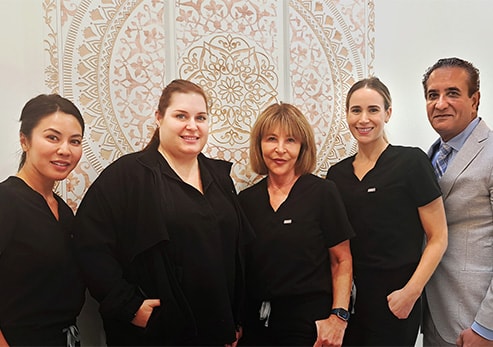
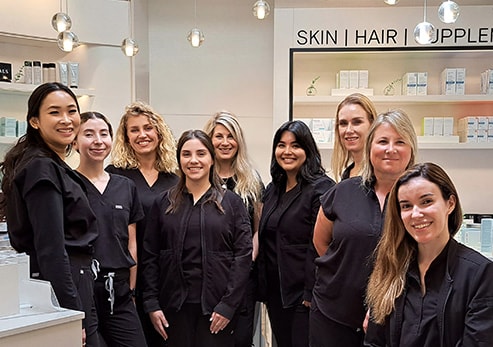
Our Nurses & Specialist
At ICLS, you will be under the care of some of Canada’s most experienced registered nurses. ICLS is one of the only practices in the country (maybe even the world!) to employ only registered nurses to deliver treatments. Our all-female nursing staff consists of hard-working, internationally-trained medical professionals.
Our nurses perform your treatment under our medical director, Dr. Sheetal Sapra, who is a top dermatologist and pioneer of new technologies aimed at improving the lives and looks of his patients. Dr. Sapra has practiced medical dermatology for more than 35 years and has made significant contributions to the field.

